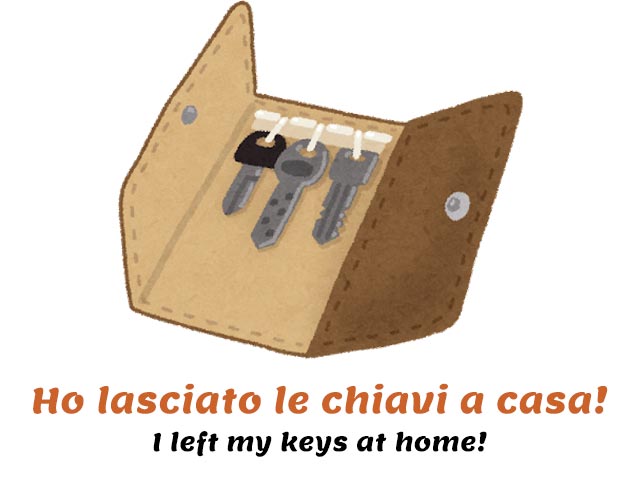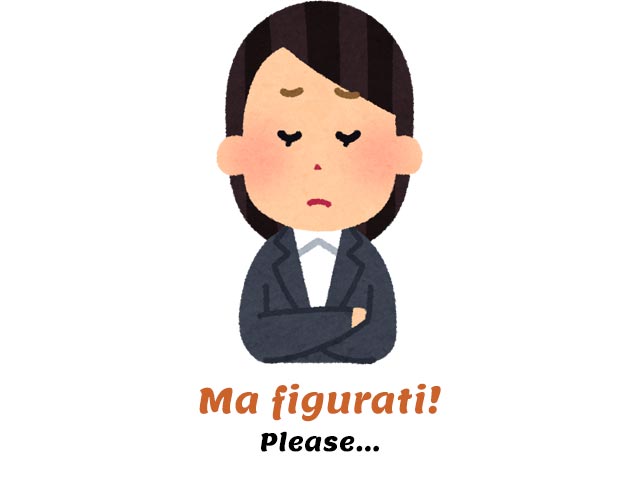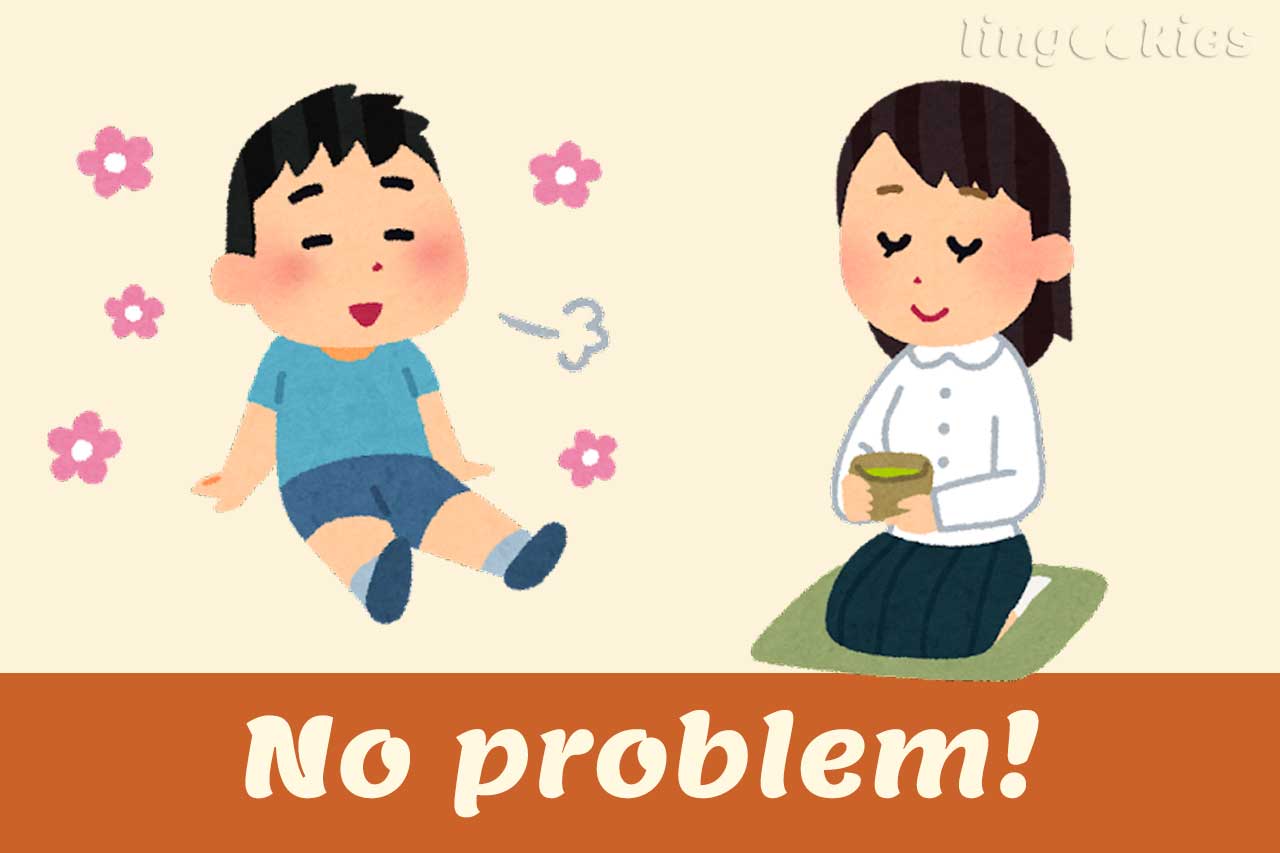How do you say it in Italian?
Nessun problema
| Words you should know | Nessuno (nobody, nothing) + problema (problem) |
| When to use this | In any context and with any person |
Nessun problema
No problem
You will never hear it as “nessuno problema”. This is because nessuno has to be shortened to nessun before any masculine word that begins with a consonant other than gn-, ps-, x-, s- and z.
Nessuno problema is WRONG!
For example, you can say…
Grazie per il passaggio. – Nessun problema!
Thanks for the ride. – No problem!
Ho lasciato le chiavi a casa! – Nessun problema, ho io una copia di scorta.
I left my keys at home! – No problem, I have a spare copy.

Non c’è problema
Non c’è problema is a slightly more polite alternative to nessun problema, but means exactly the same thing.
It literally translates to “there isn’t a problem”.
Non c’è problema
No problem
For example, you can say…
Ho dovuto parcheggiare in fondo alla via. – Non c’è problema, andremo a piedi.
I had to park down the street. – No problem, we’ll walk.

Figurati / Si figuri
Figurati is only used in informal situations. Si figuri is only used in formal situations.
They are based on the verb figurarsi, to imagine oneself. Taken literally, it doesn’t make any sense because it’s a figure of speech.
Figurati
Don’t mention it, no problem
Literally: Figure/imagine yourself
Figurati is very common among friends, almost as common as nessun problema.
You can use si figuri in any formal situation because it is very polite. Don’t use figurati when talking to strangers, because it’s informal.
Si figuri
Don’t mention it
Literally: Figure/imagine yourself
These expressions aren’t just used to translate no problem in Italian. For example, when a friend thanks you for a gift, it is very common to reply with figurati.
Grazie del regalo! – Figurati!
Thank you for the gift! – Don’t mention it!

Figurati and si figuri are also used when you want to convey the message that you did something out of pleasure.
Grazie per avermi aiutato! – Figurati!
Thanks for helping me! – Don’t mention it!
Finally, you can also use them instead of thank you to politely decline an offer from a friend.
Vuoi che ti accompagni fino a casa? – Ma no, figurati!
Do you want me to walk/drive you home? – No, don’t even mention it!
Ma figurati is not always used to say no problem in Italian. When you hear this expression, the speaker may actually be conveying disbelief, similar to the English please! when accompanied by rolling eyes.
Pensi che Marco abbia pulito i piatti? – Ma figurati!
Do you think Marco did the dishes? – Oh please!

Non ti preoccupare / Non si preoccupi
Non ti preoccupare is used in informal situations, while non si preoccupi is used when you want to sound respectful and polite.
They both come from the reflexive verb preoccuparsi, which means to worry (oneself).
Non ti preoccupare
Don’t worry (informal)
Non si preoccupi
Don’t worry (formal)
Non fa niente / Non importa
Non fa niente and non importa are used as a response to someone who says they are sorry. Non importa directly translates to “it doesn’t matter”, while non fa niente literally means “it doesn’t do anything”.
Non fa niente
It doesn’t matter
Non importa
It doesn’t matter
More free Italian resources
You might want to keep learning Italian online with these free Italian resources:
❤️ If you liked this lesson on how to say no problem in Italian, share it with your friends!


